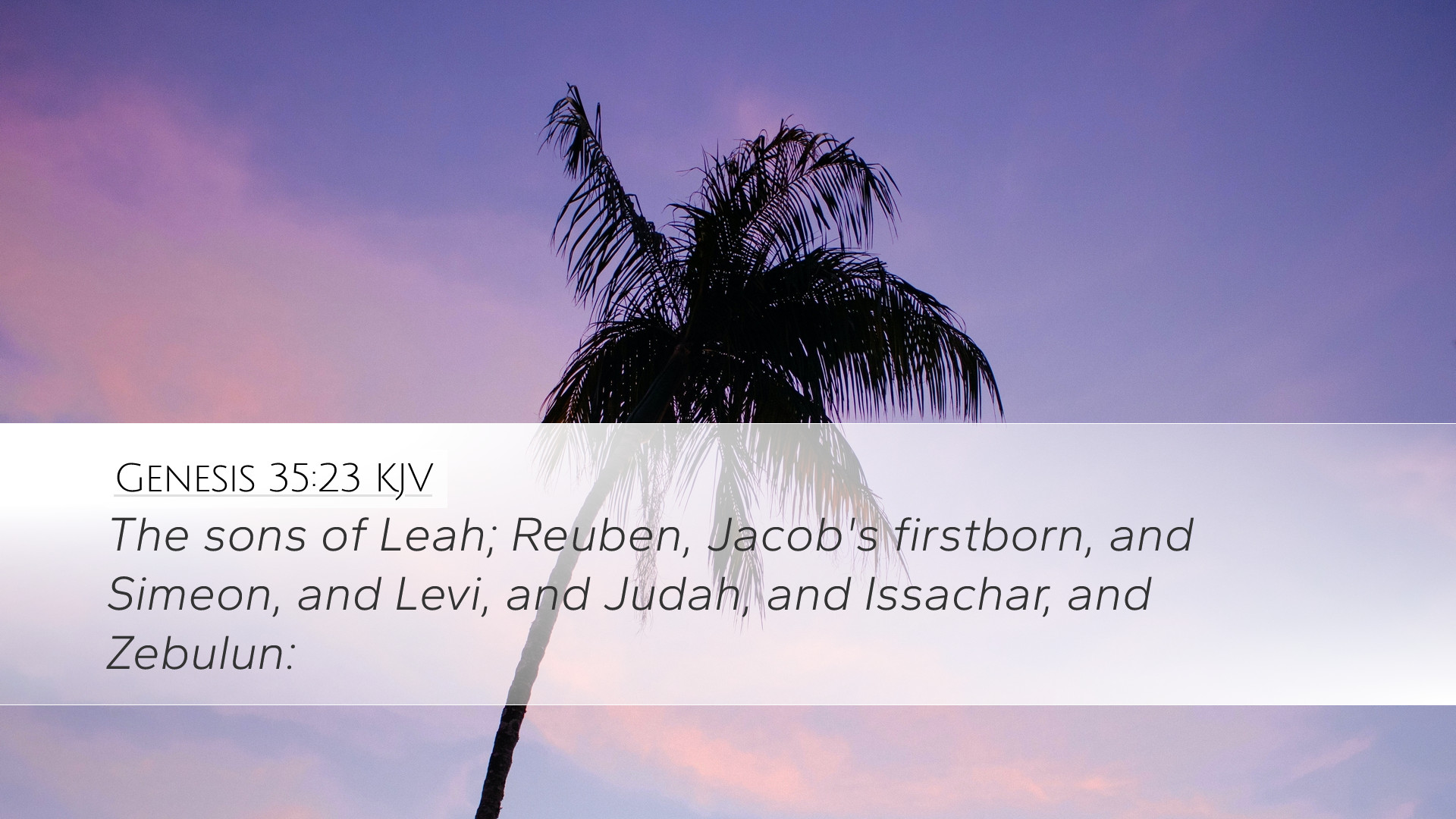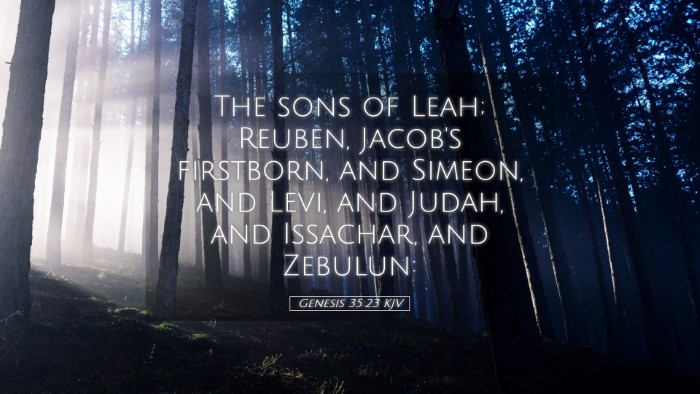Commentary on Genesis 35:23
Verse: "The sons of Leah were Reuben, Jacob's firstborn, and Simeon, and Levi, and Judah, and Issachar, and Zebulun."
Introduction
Genesis 35:23 serves as a succinct enumeration of the sons of Leah, one of the principal wives of Jacob. The genealogical lineage articulated here is essential for understanding the development of the tribes of Israel and their distinct characteristics. In this commentary, we will explore various insights from public domain commentaries to extract theological and historical significance from this verse.
Contextual Overview
To fully appreciate Genesis 35:23, one must consider its placement within the broader narrative of Jacob's life and the formation of the tribes of Israel. This verse appears after the significant events at Bethel, where God reaffirms His covenant with Jacob. Moreover, it is positioned after the death of Rachel and the birth of Benjamin, hinting at the unfolding family dynamics within Jacob's household.
Historical Significance
Matthew Henry emphasizes the importance of genealogies in the Scripture, as they provide a record of God’s faithfulness through generations. The listing of Leah's sons not only establishes the foundation for the tribes of Israel but also reflects the divine plan manifest in the lineage leading to Jesus Christ. Importantly, Leah's children, despite being from her less favored status compared to Rachel, become pivotal figures in God's unfolding story.
Theological Implications
Albert Barnes notes that the sons of Leah are indicative of God's blessing upon those whom society often overlooks. This verse illustrates the theme of divine favoritism and grace, as Leah, once unloved, bears children through whom God’s promises are fulfilled. Each son represents distinct attributes and responsibilities that contribute to the identity of Israel and its future as God’s chosen nation.
Analysis of the Sons
Each son listed in Genesis 35:23 carries individual characteristics and prophetic significance:
- Reuben: Reuben, as the firstborn, carries the birthright and a natural leadership role. However, his instability and impulsive actions lead to significant repercussions in the family dynamics.
- Simeon and Levi: Both sons are infamous for their violent zeal. Their actions against Shechem demonstrate both the dangers of unchecked anger and the severe consequences of vengeance.
- Judah: The fourth son, Judah, becomes central to the lineage of David and, ultimately, Christ. His character arc—from a questionable action in selling Joseph to becoming a leader in Israel—illustrates redemption and God’s sovereign choice.
- Issachar and Zebulun: These two sons signify labor and commerce, representing the merging of spiritual and material pursuits in God's economy—a foreshadowing of the balance in community responsibilities.
Spiritual Lessons
The commentary by Adam Clarke highlights the significance of family roles and the legacy left by each child in Israel's history. This passage invites pastors and theologians to reflect on several spiritual lessons:
- The Value of Each Individual: Just as Leah's sons, often overshadowed by Rachel's children, hold vital roles in the lineage, every individual within the church possesses unique gifts and callings, contributing to the body of Christ.
- Redemption and Grace: The narrative of Judah serves as a powerful reminder that God's purposes can triumph even amidst human flaws and failures. His grace operates beyond human understanding.
- Community and Legacy: The dynamics of familial relationships in the context of Genesis 35:23 prompt a reflection on how our actions and relationships leave a lasting impact, emphasizing the importance of nurturing healthy community bonds.
Conclusion
Genesis 35:23 encapsulates significant historical and theological insights within a brief genealogical reference. By examining the implications and characteristics of Leah’s sons, we uncover profound truths about God’s faithfulness, grace, and the importance of each member within His covenant community. As we study these texts, may we be reminded of our roles within the broader family of faith and our responsibility to honor the legacy entrusted to us.


